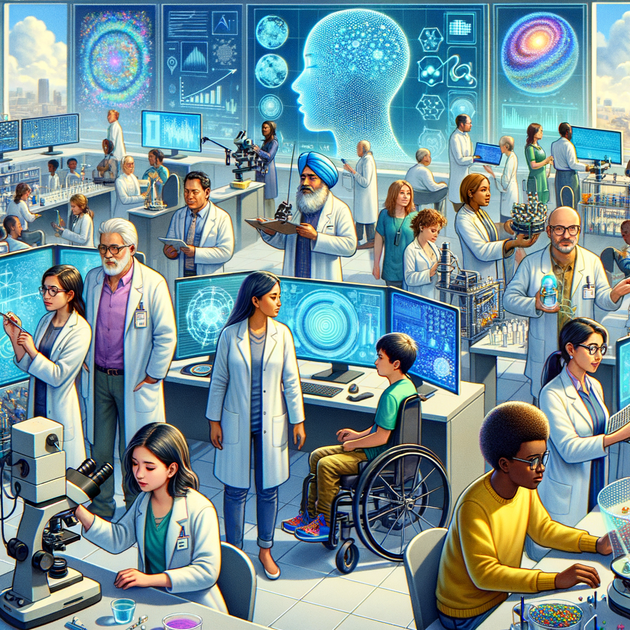Breaking Barriers: How AI is Democratizing Science for Everyone
Imagine a world where anyone, regardless of their background, could make groundbreaking scientific discoveries. This isn’t a far-fetched dream anymore but a reality coming to life, thanks to the power of Artificial Intelligence (AI). In this article, we delve into the profound ways AI is making science more inclusive and accessible, enabling a new era of citizen participation and innovation.
The Power of AI in Science
Artificial Intelligence has already revolutionized numerous sectors, and its impact on science is no exception. Traditionally, scientific research has been the domain of well-funded institutions and academic elites. However, AI is rapidly changing this dynamic by providing tools and resources that democratize access to scientific knowledge and methodologies.
AI-Driven Accessibility
One of the most significant advantages of AI is its ability to process vast amounts of data quickly and accurately. This capability opens the door for more people to engage in scientific research. For instance, platforms like Google Colab provide free access to powerful computational resources, allowing anyone with an internet connection to run complex simulations and data analyses that were once reserved for those with access to expensive infrastructure.
Example: A high school student in a remote town can now use these AI tools to contribute to climate change research, analyzing data and identifying patterns that can help local and global communities understand environmental impacts better. This level of participation was unimaginable a decade ago.
Citizen Science and AI
AI is not just making tools accessible; it’s actively engaging citizens in scientific projects. Platforms like Zooniverse use machine learning algorithms to manage and analyze data provided by volunteer contributors. Participants can classify images of galaxies, transcribe historical documents, or monitor wildlife populations, assisting researchers with tasks that would otherwise take years to complete.
Collaborative Breakthroughs
The synergy between AI and citizen science is yielding remarkable results. For example, the AI-driven protein-folding project by DeepMind has made significant advancements by combining computational power with human insight. This collaborative approach accelerates discovery processes, making it possible for breakthroughs to occur more frequently and efficiently.

These collaborative efforts don’t just benefit the scientific community. They also empower individuals by giving them a sense of contribution and ownership in the scientific process, fostering a more informed and scientifically literate society.
AI and Educational Outreach
Education is a pivotal frontier where AI can democratize science. Through AI-powered platforms, learners of all ages can access customized and interactive learning experiences. Tools like Khan Academy’s AI-based tutor or interactive AI-driven learning modules bring complex scientific concepts to life, making them easier to understand and more engaging.
Example: In underprivileged areas, where access to quality education is limited, AI can bridge the gap. Digital classrooms equipped with AI tutors can provide personalized learning experiences, ensuring that every student gets the attention they need to grasp difficult scientific concepts.
An Inclusive Future
The promise of AI lies not just in making science more advanced, but in making it more inclusive. By breaking down barriers to entry and providing tools that anyone can use, AI is fostering a new generation of citizen scientists. These individuals bring diverse perspectives and enthusiasm, enriching the scientific community and driving innovation forward.
AI Ethics and Responsible Innovation
While the benefits of AI in democratizing science are immense, it is crucial to approach this evolution responsibly. Ethical considerations, such as data privacy, algorithmic bias, and the digital divide, must be addressed to ensure that AI-driven democratization remains fair and equitable for all.
Initiatives like PAI (Partnership on AI) are working to create frameworks that ensure AI technologies are developed and applied ethically, promoting transparency and accountability in AI-driven scientific research.
Engage and Innovate
The dawn of AI-driven science democratization is here, inviting all of us to participate, explore, and innovate. Whether you’re a seasoned researcher or a curious novice, there are endless opportunities to contribute to the world of science like never before.
What scientific challenge are you eager to explore with the help of AI? Share your thoughts and join the conversation in the comments below. Let’s democratize science, one discovery at a time!
